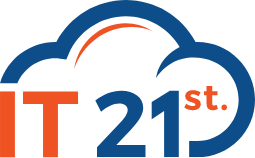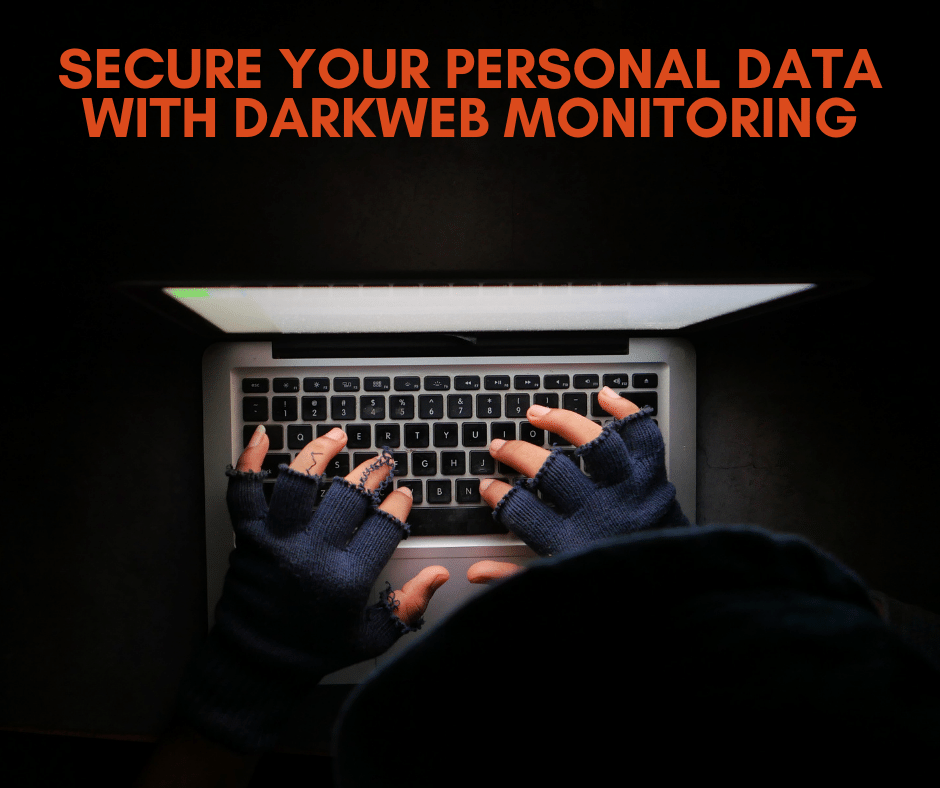By: Francis Salang
I. Introduction
In today’s fast-paced business world, small businesses must leverage technology to remain competitive. However, managing and maintaining IT systems can be a daunting task, especially for small businesses with limited resources and expertise. In this blog post, we will explore common IT challenges faced by small businesses and provide strategies to overcome them. From Cybersecurity threats to outdated hardware and software, we’ll examine how small businesses can optimize their IT systems to improve efficiency, security, and productivity. Whether you’re a small business owner or manager, this blog post will provide you with valuable insights and practical tips to overcome common IT challenges and take your business to the next level.
The Importance of IT For Small Businesses
The importance of IT for small businesses cannot be overstated. IT systems play a critical role in improving business efficiency, streamlining operations, enhancing communication, and boosting productivity. With the right IT infrastructure in place, small businesses can operate more efficiently, automate routine tasks, and provide better customer service. IT systems also enable small businesses to compete with larger companies by providing access to advanced tools and technologies that were once only available to big enterprises. Additionally, IT systems can help small businesses to expand their reach by allowing them to connect with customers and clients from anywhere in the world. Overall, investing in IT is a smart move for small businesses looking to stay competitive and thrive in today’s digital age.
Overview of Common IT Challenges Faced by Small Businesses:
Small businesses face numerous IT challenges that can hinder their growth and success. Here are some of the most common IT challenges faced by small businesses:
1. Lack of IT Expertise and Resources: Small businesses may not have the financial resources or expertise to hire an in-house IT team or invest in the latest technologies and tools.
2. Cybersecurity Threats: Small businesses are increasingly targeted by cybercriminals who seek to steal sensitive data, disrupt business operations, and cause financial harm.
3. Outdated Hardware and Software: Many small businesses use outdated hardware and software that can be slow, inefficient, and vulnerable to security threats.
4. Inefficient IT Systems: Small businesses may lack the processes and tools to optimize IT systems, leading to inefficiencies, errors, and delays.
5. Inadequate Data Backup and Recovery Processes: Small businesses may not have robust backup and recovery processes in place, leaving them vulnerable to data loss and downtime in case of a disaster.
By understanding these common IT challenges, small businesses can take proactive steps to overcome them and leverage technology to their advantage.
II. Common IT Challenges Faced by Small Businesses
Lack of IT Expertise and Resources
Small businesses often face a lack of IT expertise and resources, which can make it challenging to maintain and optimize their IT systems. However, there are several strategies that small businesses can use to overcome this challenge:
1. Hire an IT consultant or outsource IT services: Small businesses can benefit from working with IT consultants or outsourcing IT services to third-party providers. These experts can provide guidance and support in areas such as network management, cybersecurity, data backup and recovery, and software updates.
2. Invest in employee training and development: Small businesses can also invest in employee training and development to enhance their IT expertise. This can include providing online courses, workshops, and certifications to employees to develop their IT skills and knowledge.
3. Utilize online resources and tools for self-education: There are numerous online resources and tools available for small business owners to learn more about IT. This can include free or low-cost courses, tutorials, webinars, and blogs that cover a wide range of IT topics.
It’s also important for small businesses to prioritize their IT needs and allocate resources accordingly. By focusing on the most critical areas of their IT infrastructure, small businesses can maximize their limited resources and expertise to achieve the greatest impact. Overall, small businesses can overcome the challenge of a lack of IT expertise and resources by taking a proactive approach to IT management and leveraging external expertise and resources where necessary.
Cybersecurity Threats
Cybersecurity threats are a growing concern for small businesses, as cybercriminals continue to target businesses of all sizes. These threats can take various forms, including malware, phishing attacks, ransomware, and data breaches, all of which can cause significant damage to a business’s reputation, finances, and customer trust.
One effective way to combat cybersecurity threats is by training employees to be aware of them. Many cyberattacks are the result of employee error, such as clicking on a phishing email or using weak passwords. By training employees on cybersecurity best practices, such as creating strong passwords, recognizing phishing emails, and using two-factor authentication, businesses can reduce their risk of a cyberattack.
In addition to employee training, small businesses can implement other cybersecurity measures to protect their IT systems, such as:
1. Installing and regularly updating anti-virus and anti-malware software
2. Implementing password management and enforcing strong password policies
3. Using firewalls and intrusion detection systems
4. Regularly backing up data and storing it securely
5. Implementing data encryption to protect sensitive information
By taking a proactive approach to cybersecurity, small businesses can minimize their risk of a cyberattack and protect their sensitive data and valuable assets. It’s important to remember that cybersecurity is an ongoing process, and businesses must remain vigilant and adaptable to stay ahead of evolving cyber threats.
Outdated Hardware and Software
Outdated networking devices and IT infrastructure can lead to slow network speeds, data loss, and security vulnerabilities. To overcome this challenge, small businesses can take the following steps:
1. Conduct an inventory of IT tools, equipment, and software: Small businesses should have a clear understanding of their IT infrastructure, including the hardware and software they use. This can help identify outdated devices and software, as well as redundant tools that are no longer needed.
2. Prioritize upgrades and replacements: Once a business has identified outdated devices and software, they should prioritize upgrades and replacements based on their budget and needs. This can include replacing old servers, upgrading operating systems and software applications, and investing in faster networking devices.
3. Eliminate unnecessary subscriptions: Small businesses often sign up for subscriptions to software or services that they no longer need or use. By reviewing subscriptions and eliminating unnecessary ones, businesses can reduce costs and allocate resources more effectively.
4. Work with an IT consultant or managed service provider: Small businesses can benefit from working with an IT consultant or managed service provider who can help identify outdated technology and develop a plan for upgrades and replacements. These experts can also help with ongoing management and maintenance of IT systems, freeing up time for small business owners to focus on their core business activities.
By organizing and optimizing their IT tools and equipment, small businesses can increase efficiency, productivity, and security. Investing in modern hardware and software can also improve the customer experience and provide a competitive edge. Working with an IT consultant or managed service provider can help small businesses navigate the complex world of IT and make informed decisions about technology investments.
Inadequate Data Backup and Recovery Processes
Inadequate data backup and recovery processes can be a major challenge for small businesses, as data loss can result in significant financial losses and damage to the business’s reputation. Inadequate data backup and recovery processes can be caused by a variety of factors, including insufficient data storage capacity, inadequate backup frequency, and outdated backup technologies.
To overcome this challenge, small businesses can take the following steps:
1. Conduct a data backup and recovery audit: Small businesses should conduct a thorough audit of their data backup and recovery processes to identify inefficiencies and areas for improvement. This can include reviewing backup frequency, storage capacity, and backup technologies.
2. Implement a data backup and recovery plan: Based on the results of the data backup and recovery audit, small businesses should implement a comprehensive data backup and recovery plan. This plan should include regular backups of all critical data, offsite storage of backups, and regular testing of the recovery process to ensure that data can be recovered quickly in the event of a disaster.
3. Consider cloud-based backup solutions: Cloud-based backup solutions can provide small businesses with an affordable and secure way to store and recover data. Cloud-based backup solutions offer the added benefit of offsite storage, which can help protect against data loss due to physical disasters.
4. Invest in employee training: Employee training can also help improve data backup and recovery processes. By educating employees on best practices for data backup and recovery, small businesses can reduce the risk of data loss and improve their ability to recover data in the event of a disaster.
At IT21ST, we offer a range of IT consulting services to help small businesses overcome the challenges of inadequate data backup and recovery processes. Our team of experienced IT consultants can conduct a thorough data backup and recovery audit and develop a customized plan for backups and recovery. We can also provide cloud-based backup solutions and employee training to help small businesses protect their critical data. By partnering with [company name], small businesses can ensure that their data is protected and can be recovered quickly in the event of a disaster.
IT plays a crucial role in the success of small and medium-sized businesses, and overcoming IT challenges is essential for growth and profitability. At IT21ST, we understand the unique challenges that small businesses face, and we are committed to providing tailored IT solutions to meet their needs.
Our team of experienced IT consultants offers a wide range of services, including network management, cybersecurity solutions, data backup and recovery, and more. By partnering with us, small businesses can benefit from the latest technologies and expert support to ensure that their IT systems are secure, efficient, and reliable.
Don’t let IT challenges hold your business back. Contact us today to learn how we can help you take your small business to the next level. You can message Ali Nader, our CEO, directly on our website to schedule a consultation and discuss your IT needs.
Let IT21ST be your trusted partner for all your IT needs!



